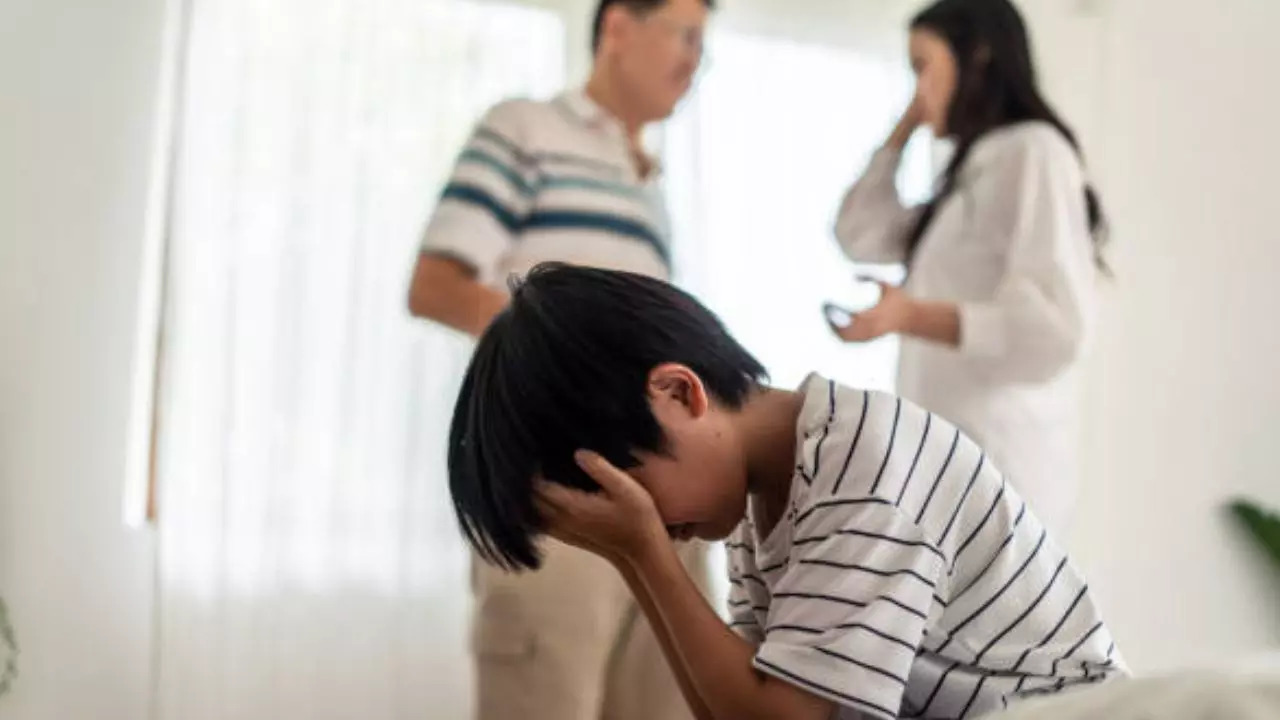Home gaming problems are linked to behavioural problems in children, study finds (Image credit: iStock)
A new report has revealed that an estimated 1.6 million children in the UK live with an adult who shows signs of gaming addiction. The study also found that children exposed to gaming are four times more likely to develop gaming addiction problems.
These worrying findings emerge from GambleAware’s latest annual Treatment and Support Survey, which included a YouGov online poll of more than 18,000 British adults, as well as face-to-face interviews with current and former gamblers and online focus groups with affected individuals.
The impact of gaming addiction at home on children is significant. “When a parent struggles with gaming addiction, this can lead to major changes in family dynamics, affecting relationships, communication and emotional regulation,” explains Dr Manpreet Dhuffar-Pottiwal, a chartered psychologist specialising in behavioural addictions. “This creates a complex and confusing environment for children to navigate.”
Growing up in an environment characterised by tension and hostility, often caused by gambling, can have short- and long-term effects on a child’s life. “Children may experience neglect, financial instability and emotional distress due to parents focusing on gambling rather than family needs,” says Dhuffar-Pottiwal. “In the short term, this can lead to conflict within the family as the parent may prioritise their need to earn over spending time with their child. In the long term, the child may struggle to form healthy relationships, manage their finances and avoid impulsive behaviour in search of thrills and instant rewards.”
Children can easily adopt the behaviors of a gaming parent, especially during early childhood development. “The first seven years are crucial for a child’s development, as this is when they learn from their primary environment – the home,” explains Dhuffar-Pottiwal. “This period basically sets the blueprint for how they will function in their adult life.”
As a result, risky behaviors exhibited by adults at home may influence children to imitate them. “In elementary school, children may not fully understand the implications of gambling, but they may view related behaviors as normal. For example, spending time in front of screens playing games like ‘free’ raffles that are implicitly linked to gambling,” says Dhuffar-Pottiwal. “Children imitate these behaviors often because of their emotional attachment to parents and their need for acceptance and validation.”
This exhibit explains why children raised in a home with a gambling addict are more likely to develop a gambling problem themselves. “This cycle of addiction can be attributed to learned behaviors, trauma“And an environment where play is normalized,” Dhuffar-Pottiwal said. “Without the proper support, these children may end up repeating the patterns they experienced at home.”
The consequences of exposure to gaming at home can extend well into adulthood. Developing a desire for risk and high-risk rewards in early childhood can lead to significant problems later in life. “This behavior can result in poor decision-making, problems controlling impulses, and a tendency to seek out high-risk activities as they get older,” explains Dhuffar-Pottiwal. “These behaviors can severely impact their education and social interactions.”
Living with a gambling addict can also take a heavy toll on the child. mental health“These children may experience not only the intergenerational impact of trauma passed down through their parents, but also their own complex trauma, as well as depression, anxiety, low self-esteem and a sense of being trapped in a chaotic environment,” Dhuffar-Pottiwal warns.
Additionally, the inconsistency and financial instability caused by parental gambling addiction can lead to feelings of shame and isolation, making it difficult for children to seek help or express their feelings. “Financial unpredictability can also lead to feelings of shame and social isolation,” Dhuffar-Pottiwal adds.
Disclaimer:
The information contained in this post is for general information purposes only. We make no representations or warranties of any kind, express or implied, about the completeness, accuracy, reliability, suitability or availability with respect to the website or the information, products, services, or related graphics contained on the post for any purpose.
We respect the intellectual property rights of content creators. If you are the owner of any material featured on our website and have concerns about its use, please contact us. We are committed to addressing any copyright issues promptly and will remove any material within 2 days of receiving a request from the rightful owner.

